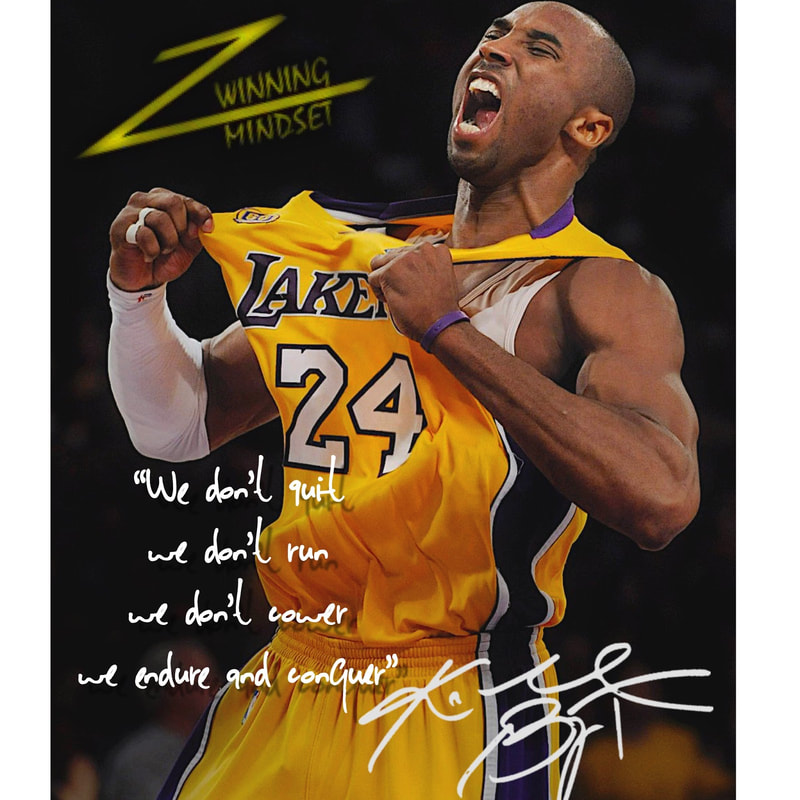By Jimmy Kaishian
NCAA AA wrestler
Collegiate Coach
9/21/2018
NCAA AA wrestler
Collegiate Coach
9/21/2018
After emphasizing in an interview that failure doesn’t exist Kobe Bryant was asked if he ended his career without an NBA championship, would he consider it a failure. His response was, in my unbiased opinion, awesome… In short, he said “well it would be more of a huge disappointment… I’d have to sit back and look at why that happened, was it poor communication, was it that I didn’t work at the right things, did I not set up my teammates for success ect..” because the only way he would see it as a failure if he didn’t take those lessons into his next steps. If he didn’t succeed for certain reasons in basketball, he explained he would continue to have the same result for those reasons in life… At the end of the day there are few real concrete endings in life therefore “THE STORY CONTINUES.”
The comments by Kobe bring up an old debate that was eventually brought up by the same reporter. Who is more successful those who hate to lose or those who love to win? A strong argument could be made for both. A person who hates to lose will do everything in their power to… you guessed it… not lose, i.e. train harder, smarter, do the little things right and let their failures drive them to success. On the flip side of the coin a person who loves winning will do anything to win, i.e. train harder, smarter, do the little things right and let the feeling of high achievement fuel their fire. But without trying to sound too cliché’, because make no mistake the goal is to win, let the Mamba offer an alternative perspective.
The comments by Kobe bring up an old debate that was eventually brought up by the same reporter. Who is more successful those who hate to lose or those who love to win? A strong argument could be made for both. A person who hates to lose will do everything in their power to… you guessed it… not lose, i.e. train harder, smarter, do the little things right and let their failures drive them to success. On the flip side of the coin a person who loves winning will do anything to win, i.e. train harder, smarter, do the little things right and let the feeling of high achievement fuel their fire. But without trying to sound too cliché’, because make no mistake the goal is to win, let the Mamba offer an alternative perspective.

Recent work by Carol Dweck and colleagues provide evidence as to why this mindset may be the missing link or key ingredient to highly successful individuals. What Dr. Dweck’s team was able to do was correlate a person’s viewpoint to their ability to bounce back from ‘failure’… Which we can all agree is essential to success in sport… The individual that views intelligence (apply to athleticism or talent) as controllable vs. an individual who thinks the intelligence is a fixed entity. The differences were incredible. The individuals with a growth mindset were substantially more resilient in the face of adversity, learned faster, and were more successful in all measured categories!

Kobe when asked why he kept shooting after missing 3 consecutive potential gaming winning threes against the Washington wizards (in an elimination game) claimed he didn’t get caught up in what other people thought. All he was thinking was “wow, I should have made that.” His final assessment was conditioning, as a rookie he was used to around 60-80 games vs. the 121 games he had played that season. He changed the way he prepared… and you know the rest. This ‘how can I get better’ mentality is what the Winning mindset drives home in their athletes. Luckily thanks to Dweck and colleagues there is significant evidence that this mindset can be taught and learned!
The results of this study apply to team leaders, who should acknowledge effort inside practice. Especially coaches who can tie in experience, i.e. “this effort will pay off because I’ve seen XYZ… you control your destiny etc.” Because we have far more control over things than we realize and if the end result isn’t satisfactory regroup, reassess, and give it another shot. Because when you play to grow
“THE STORY [ALWAYS] CONTINUES”
play to learn my friends!
References:
Blackwell, L., Trzesniewski, K., & Dweck, C. (2007). Implicit theories of intelligence predict achievement across an adolescent transition: A longitudinal study and an intervention. Child Development, 78(1), 246-263.


